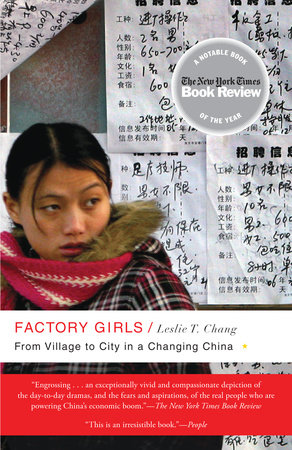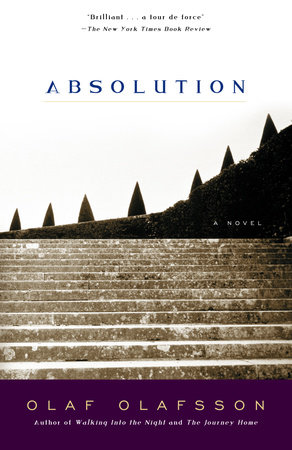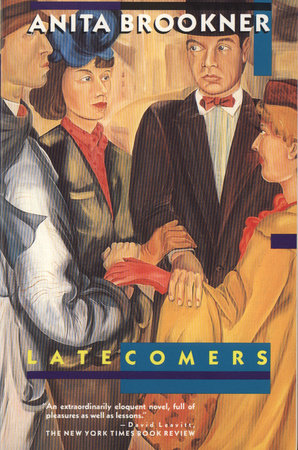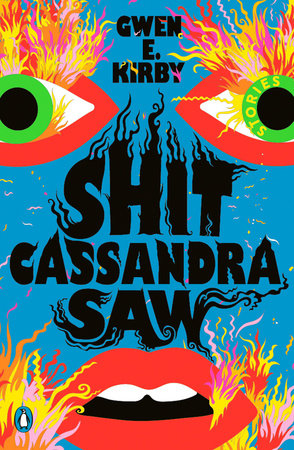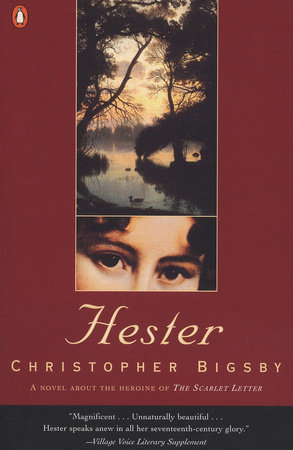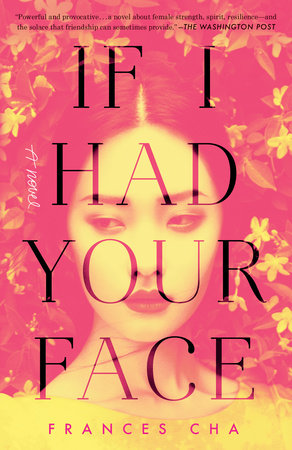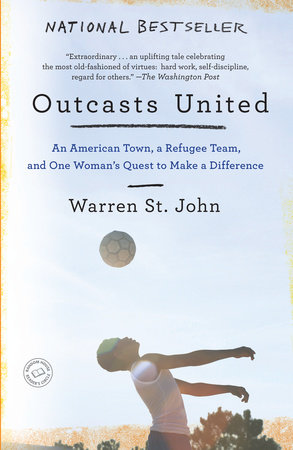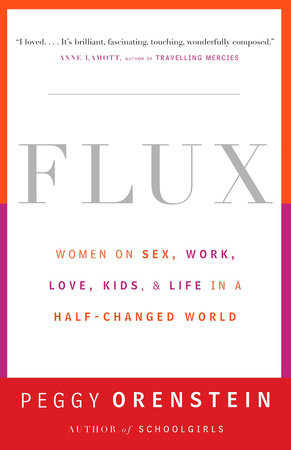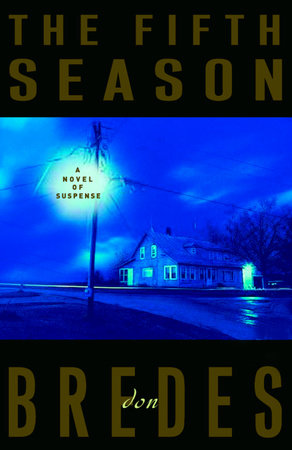Author Q&A
Q: How did you find the women you interviewed for this book, and why were some of your interviews done in a group and others done individually?
A: It’s amazing the variety of women you can find if you put your mind to it. I give a lot of talks across the country on girls’ issues, so I’d ask for volunteers there. I went to meetings of women’s professional associations, I advertised in newsletters and e-mail lists, I even accosted total strangers: once I was having lunch and started eavesdropping on the conversation at the next table. I thought "these women would be perfect for my book" so I just barged in and asked if they might allow me to interview them sometime. They thought I was crazy, but they eventually said yes.
The group interviews were a really important foundation. They gave me a sense of the themes of women’s lives, the commonalties. But to see how those themes played out, I had to go in deep with individuals, spending time with women who were grappling with particular sets of pressures and seeking their own solutions. And I have to say, as a reader, that’s what I like–I’m less compelled by books that just have disembodied voices. I want to get to know people and care about them.
Q: Throughout the book, you mention the paradigms of the "Perfect Wife" and the "Good Mother." How do these images affect women today, and why do they still cast such long shadows over women’s lives?
A: In some ways, I think those images have a greater impact than ever before. Both the "Perfect Wife" and the "Good Mother" encourage women to silence themselves, to put their own needs, desires, ambitions, their personhood second in their relationships. And women described that as a really subtle process. It was interesting, before they were married women spoke very openly about wanting to resist the lure of the "Perfect Wife." And after they’d been married twenty years, they spoke very openly about the damage the Perfect Wife had done both to them and their relationships. In between, though, it wasn’t a big topic of conversation, perhaps because that’s when the "Perfect Wife" and "Good Mother" influence is the most powerful, even for women who are independent and strong-willed. Even for a generation of women who was raised to believe we could "be anything we wanted to be."
Meanwhile, women today constantly feel like they’re not "good enough" mothers, even though research has shown that we actually spend exactly as much time nurturing our kids as women did in the 1960s. I just read a poll in Sesame Street Parents magazine that said women feel motherhood hurts their self-esteem. That is so sad. But the Good Mother encourages women to set totally unrealistic standards for ourselves. Sometimes talking to women about being a "good mother" reminded me of interviews I used to do with girls about their weight, how they could never be thin enough, never be good enough. I don’t know if there’s a Good Mother equivalent of an eating disorder, but I wondered, how "good" does a mother have to be before she’s "good enough"?
The Good Mother-or really the threat of the Bad Mother–had an impact for women even before they were married or had kids, even before they had boyfriends. The young women I spoke with were already making choices in their careers, in their choice of mates based on an idea of what would allow them to be "good mothers." Usually, though, what the strategies they were pursuing would really do was not make them better mothers but assure that they’d end up making most of the sacrifices at home–it was setting them up for conflict.
Q: After pointing out that women in their twenties today have more sex and have it earlier than their mothers did, you mention a surprising finding about these women and their sexuality. What is it?
A: This was an area where not as much had changed for women as I would’ve thought, or they would’ve liked to believe. The interviews got really awkward when we talked about sex. At first I thought it was modesty, but I eventually realized that it was often insecurity, confusion, even pain. For a lot of women, their initial encounters were dehumanizing, and taught them that men’s needs supersede their own. Women would tell me very clearly that it was essential to be able to "ask for what you want" in sex, but then admit that they often couldn’t do it, which says something about their deepest feelings of legitimacy. Can a woman who sacrifices her own satisfaction because, as one told me, "it’s just easier, " form truly equal relationships outside of the bedroom?
When young women did feel control over their sexual lives and pleasure they viewed it as part of a very conscious, larger quest for autonomy. It was hooked into basic self-esteem issues. As one woman said, "if you can ask for all this pleasure in bed, you start to feel like you deserve it other places too."
Q: In the section on women in their thirties (what you call the Crunch years), you talk about the need for our culture to "modernize motherhood." What do you mean by this?
A: To modernize motherhood we have to demand more from men and cede some control as women. We really, really still believe that mothers are and ought to be the primary caretaker. Fathers "help. " To me, one of the most interesting chapters of Flux is about a couple that really expected to have an equal parenting split-in fact, they even talked about the husband staying home. He actually took six months unpaid paternity leave, so they were really on the cutting edge. And yet in the end, she decided to be a stay-at-home mom. Exploring how that happened and what the dynamics were was a way to talk about our ideas about motherhood, fatherhood and the real range of "choices" we allow ourselves to consider.
Q: "Balance" is a word that cropped up in many of your conversations with women across different age groups. Why is this concept so important (and so unique) to women’s lives?
A: Actually, I’ve gotten hostile toward the word "balance." Because it’s only applied to women. And to that extent, I think it’s a euphemism for "compromise" and "contradiction." It’s a way of keeping the responsibility for managing family life on us. It also perpetuates the illusion that if a woman tries, just by strength of will she can manage everything, and she can do it without requiring similar compromises from her mate. And that makes women feel perpetually inadequate. It also keeps us from questioning the terms of the debate. So, I’m all for balance. I’m all for priorities. But I want to see men doing it too. Because the truth is, women will never, never be less overwhelmed until we demand more from men.
Q: Last year saw an outpouring of books about single women in their thirties (call it the "Bridget Jones Syndrome"). Based on your interviews with young women about relationships and marriage, why did this trend become so popular?
A: First of all, women are marrying later, so there simply are more women in their thirties who are single. Bridget Jones and Ally McBeal and Sex in the City reflect our ambivalence about that: on one hand, there’s a sort of exhilaration in being on your own, able to make your own destiny and pay for the occasional pair of Manolo Blahniks. On the other hand, there’s this fear that there may be a price to be paid for our new choices. Over the long term, women still don’t see being single as a viable alternative–or they see it as okay for someone else, but not for themselves. And as long a that’s true, we’re as vulnerable as previous generations to making choices out of fear rather than desire–we just have a few extra years before panic descends. That’s why it was really important for me to interview women across an age span: so I could include a chapter on women in their forties who were never-married and show what their lives were reallylike. Is it really as awful as the young women think it will be?
Q: You describe a woman’s choice to remain childless as one of the last social taboos, and also as an issue you’ve dealt with personally. How did you cope with the social stigma attached to this decision, and how did it affect your research into this particular aspect of some women’s lives?
A: Part of the reason I started this book was that I felt completely flummoxed about whether or not to have children. I was thirty-four, married, with an established career and I just couldn’t make this decision. I wanted the richness of motherhood in my life, but worried over its cost–not just to my career but to my marriage, my sense of self. Because in our half-changed world women still compromise a lot more than men when they have kids. And that "Good Mother" icon was in me as much as any woman. I also worried about what it would be like to decide not to have children–that I’d regret it when I was older, that I’d miss an important part of a woman’s experience. Of course, having the choice not to have children is a relatively new experience. So, given that, it was essential to me to explore the impulse to mother as well as what happens when women choose not to.
Actually, I spent a long time looking for the perfect person to be the center of a chapter about ambivalence over motherhood. I probably put in more time on that chapter than on any other, and finally realized that the person I really wanted to profile was myself. So, I tell my own story as honestly and unflinchingly as I can. And in the end I ask the reader, am I a new role model or a cautionary tale?
Or both?
Q: Much has been written about the need for men to contribute more in the way of housework, parenting, and in general at home. Interestingly, you say that "men may have to do more, but women also have to let them." What do you mean by this? Why do women hold onto the role of primary parent so tenaciously when they are often stretched so thin personally and professionally?
A: For many women, the definition of motherhood is about a kind of control, about being the one who "knows best": and being the one who packs the lunch, picks out the clothes, coordinates the activities. That micro-management is what makes them feel like good mothers, even as the responsibility of "doing it all" overwhelms them. Women would often say to me that their husband didn’t "do it right," whatever "it" was–the laundry, cleaning, dressing the kids–and so it was "easier" to do it themselves. But mother management is also a real source of power in a world where women can feel powerless. And that’s not so easy to give up. The truth is, if you’re doing it all, you don’t have it all. But until force ourselves to break free from the Good Mother’s psychological grip, with its unattainable standards and sweet sense of authority, we can never fully address the external barriers to a more satisfying life.
Q: You interviewed a lot of men, too. Why?
A: I interviewed boyfriends and husbands whenever possible. I wanted their perspectives, and I’m really glad I did it. For one thing, it gives women insight into men and offers an opening for discussion about all these issues with the men in their lives. I think it also makes the book more man-friendly. Man-bashing is so passe. I don’t do that. What was interesting, though, was that men thought I was out to get them. They were almost always suspicious of me until we’d talked for a long time. It’s too bad that when they imagine someone writing about women they assume she’ll attack men.
Q: Research has shown that single and childless women are just as happy and healthy as their married and mothering counterparts. Yet you found that most women still think they are better off with a partner and a family. Do you hope to change some of this thinking on the part of women with the publication of your book?
A: Absolutely. One of the things I wanted this book to do was act as a conversation among women across lines of age and experience, and it was especially important to me to have that conversation include women in their forties who were single and who didn’t have children. I was surprised myself by their relative contentment. It’s not that their lives were perfect, and certainly they have their issues which I talk a lot about in the book, but they had found really meaningful ways to create community, a sense of family, to connect with children outside of traditional boundaries. It really wasn’t the lonely, isolated, bitter life that young women seemed to think it might be. Personally, I found that liberating. If you know, really know, that being single or being childless isn’t a horrible fate, it gives you much greater freedom of choice in how you create your life. If marriage and motherhood feel compulsory, women risk compromising themselves in their choice of partner, in their decisions about when and whether to have children and in how those children are cared for.
Q: What was your most striking finding about women in their 40s?
A: Women in their forties were going through what I call the "reconsideration." The central question they’re asking is "what do I want for myself now." After being whip-sawed by the contradictions of the Crunch years, they were rethinking priorities, reckoning with the consequences of their choices, examining potential left unfulfilled. Working moms talked about wanting something beyond their jobs and family lives. Women who’d stayed home were wondering what came next. Women who hadn’t had children considered that one last time. Marriages were thrown into question. It was like women were finding themselves again.
You know, between Fluxand my last book Schoolgirls, I’ve now written about women from adolescence through their mid-forties, which some psychologists call "middlescence." I watched girls lose a sense of themselves in a profound way when they were thirteen. In their forties, I saw women fighting to get that back. And I wondered, does it really have to take so long?
Q: You discovered that most women, particularly mothers, do not talk openly to other women about their lifestyle choices (i.e. whether to work or stay at home…if they work what kind of childcare to employ…whether their husbands share in the caretaking or not…etc). Why aren’t women talking to each
other?
A: Women are defensive about their choices and that’s totally understandable. In a time of cultural flux, someone else’s decisions and accommodations can feel like a reproach. One of my favorite scenes in the book is between two sisters who have very different lives, and as they’re talking while doing the dishes, they realize that if they weren’t sisters they’d be incredibly judgmental about one another. It was a really amazing moment, yet it happened while they were doing dishes. All the best moments happened when people were doing something really ordinary.
But the women I spoke with also felt incredibly isolated in their experience. That was clear to me by how often women cried in interviews or said that answering the questions was "like therapy." I hope to break down that isolation in Flux, to get a larger discussion started. I wanted the book to read like a conversation–between the women and the reader, between me and the reader, among the interview subjects themselves–because I was hungry for that kind of conversation myself. Not just across lines of "choices," but also across age and race.
Q: You interviewed women of different races and ethnicities. Did you find that women across races, although they have different burdens to negotiate, can still come together around the pivotal issues in a woman’s life such asmarriage and motherhood? What were some of the issues unique to the non-white women you met?
A: There are women of color throughout the book, but in particular, there are two chapters that center on the lives of African American women–one that’s about a woman in her twenties and one who’s in her forties. Again, I wanted to create a feeling that these chapters talk to one another, that they’re part of a continuum, even though these women didn’t know each other and will never meet. Both talk about feeling a certain connection to white women, but also feeling pretty profound differences–even some lingering distrust, which we talked about a lot between us, about its impact on our relationship as a white reporter and black interview subject. At the same time, that was an important border to cross, because I think white women stand to learn a lot about themselves by reading about the experience of women of color.
In the professional world, particularly, elite black women (and men, too) felt their professional competence was always being called into question because of their race. And that takes a tremendous psychological toll. Some of the younger women were questioning whether they wanted to spend her lives in a world where they would always feel excluded, where they would always feel the burden of proving themselves, of representing all black people. It was an incredible pressure to live under, but it also reminded me of what white women said about being in male-dominated fields. And just as for white women, who wrestle with what it means to be female–what feminine identity is–in a mostly-male world, black women struggled in mostly-white professions to figure out what it means to be black. So, the issues were more extreme and the pressures were more intense, but both women of color and white women were trying to find ways to fulfill their professional ambitions while staying true to who they were as individuals, as women, as members of an ethnic group.
Young, educated black women also talked a lot about the dearth of educated, eligible black men to marry. That was a real hot-button issue. One woman’s mother even suggested she transfer when it turned out that out of fourteen black students in her medical school class only two were men. But again, if marrying is integral to your sense of personal success, and the odds are so skewed–especially since they wanted to marry black men–you’re much more vulnerable to over-compromising, and to putting up with behavior in relationships that, perhaps, you shouldn’t.
Q: In your epilogue, you mention a few issues that you didn’t get to explore in this book–issues affecting women late in life such caring for elderly parents, widowhood, and poverty. Now that you’ve explored adolescence in Schoolgirls and women in their 20s, 30s and 40s in Flux, can we expect your next book to focus on women in middle age and beyond?
A: I just finished this book! In the time I’ve written this book, I’ve felt myself living through it–feeling smack dab in the middle of the Crunch, and just recently sensing a shift, realizing I’m moving into the Reconsideration years. I suspect I have to resolve all the issues I describe in Flux myself before I think about the next phases of women’s lives.
On the other hand, I do sometimes consider writing a book about women in old age–I’m fascinated by the generation that’s currently in their seventies. But I have lots of ideas. I may surprise you and do something completely different!



